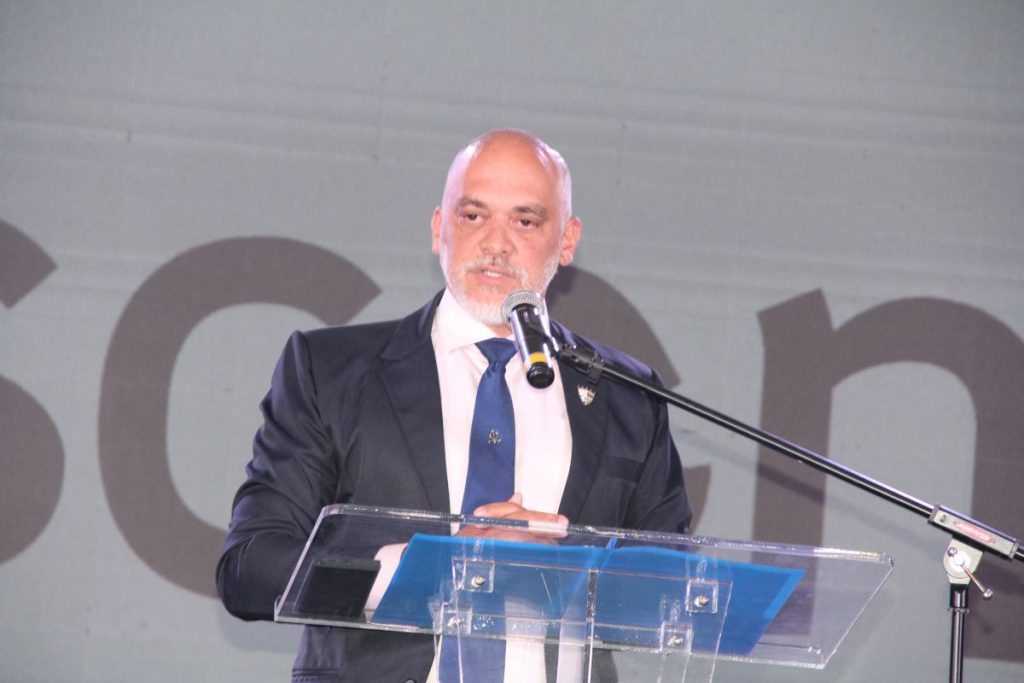Robin Russell has little interest in sporadic cash injections that will give the tourism sector a short-term shot in the arm.
What he will focus on, during his tenure as president of the Jamaica Hotel and Tourist Association (JHTA), is long-term sustainability. This will mean working to ensure the lion’s share of tourism earnings remains in Jamaica.
“That’s how I will measure my success: by looking at the percentage of the tourism dollar that stays in Jamaica,” he said, days after succeeding two-time President Clifton Reader as head of the influential group.
“The only way I see us having a sustainable product is when everybody is able to say, ‘Yes, I am a part of this’. I don’t want to see people saying, ‘Oh, I have a grant now, and I’m doing this, and next year I need another grant’. I want to see people build businesses,” added Russell who will meet with his JHTA executive team in the days ahead to discuss the way forward.

But even before that meeting, Russell he is clear on the general direction in which the JHTA should go.
A big part of that is having more locally produced goods and services used in the tourism sector, an approach already being explored through initiatives such as the Tourism Linkages Network.
In addition to greater use of locally grown agricultural produce, Russell is hoping the sector will also be able to source local supplies of everything from beds to cotton for linen and clothing.
He is also looking forward to partnering with stakeholders to provide unattached youngsters with industry jobs — an alternative to crime.
“I had a great conversation with the HOPE [Housing, Opportunity, Production and Employment] Programme. They’re hoping to start a training seminar in the next two, three weeks with 30 young men and see if we can get them integrated into tourism. That’s a pilot project and I’m very excited that if this happens… it could really make a difference in Jamaica,” he said.
The HOPE Programme is a State-run initiative that provides educational and job opportunities for 19 to 24 year olds who do not have jobs, are not in school nor already enrolled in a training programme. Working with HOPE, the JHTA head said, is a win for both job seekers and the sector which is grappling with a shortage of skilled labour.
Russell also has his sights set, as JHTA president, on keeping up the pressure — at the local and national levels — needed to curb crime even though he stressed that less than one per cent of tourists are victims.
“We’re going to continue working with the police on programmes, continue pressuring and lobbying the Government for changing of laws that help with harassment and stuff like that,” he said.
This will be complemented by work being done to sensitise employees about how their actions, as individuals, can impact the wider industry.
“We work with the [Jamaica Centre of Tourism Innovation] and HEART and Sandals Foundation, with UWI, in creating a better worker. So…they might just look at it as stealing a phone but it affects the entire industry. Because all of a sudden you get an advisory that you’re not safe in Jamaica because they are going to steal your phone, or you might get sexually harassed while you’re here,” Russell explained.
“We have had many training seminars with the US [United States] Government, with the British High Commission. As Jamaicans we may not even realise that we’re sexually harassing somebody because of our nature. We’re loving people… So it’s [about providing] training to make people aware that some cultures are different from ours,” he added.
The JHTA, Russell said, will also continue to partner with stakeholders to ensure that the sector is not crippled by the country’s crime problem, a concern recently expressed by Minister of Tourism Edmund Bartlett.
“We continue to have seminars, workshops with international agencies on best practices. But nothing is fool proof. We do try to create… different means of keeping our visitors safe when they come here. Is it 100 per cent? No. But when something is 99 per cent, we have to say that it is still very successful,” said Russell.
































































































































































































































































